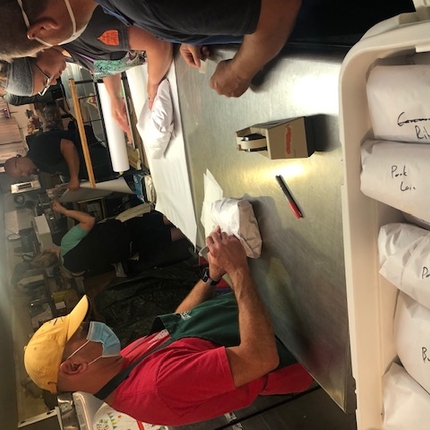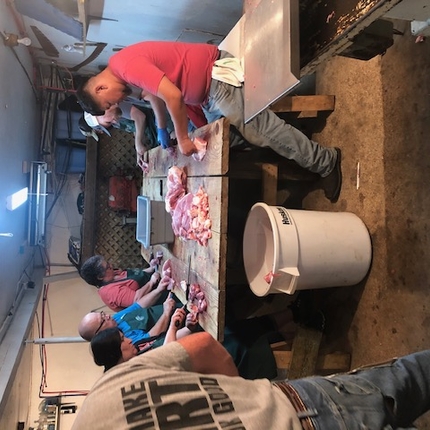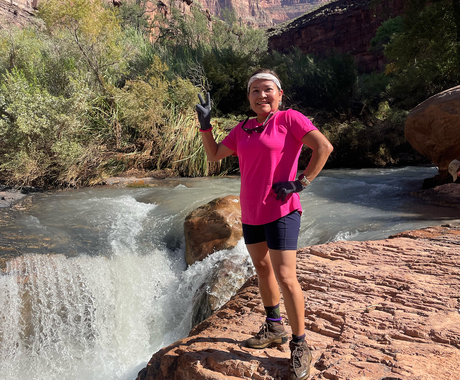By Justin Carter, former staff member
Growing up, Dusty VanRenan and Amanda Meier knew a thing or two about processing their own livestock.
Amanda’s family raised cattle, sheep, hogs, and horses near Union, Nebraska, while Dusty’s family had poultry, hogs, goats, horses, and cattle near Hyannis, Nebraska. For each, it was tradition not only to responsibly care for their animals but also to process them into a quality product. Today, they both use that passion and knowledge to find new economic opportunities and assist their rural neighbors and communities.
The outbreak of COVID-19 in our nation's meatpacking plants sent an industry reeling and exposed key weaknesses in our food supply chains. We learned that, despite an abundance of livestock in the U.S., we could see meat shortages due to the bottleneck of processing.
When their futures with large industry players, like Tyson and Smithfield, became uncertain, livestock producers turned to smaller processors and local meat lockers. This industry received a boom in business that was well deserved.
But, unfortunately, small processors are not as common and they often lack the labor and storage capacity to process on a large scale. Many producers have been left without processing options due to the pandemic.
The inability to process an animal can lead to its euthanasia. This decision places tremendous stress on farmers, but unbudgeted feed costs and the fact that most processors will reject an animal past slaughter weight puts serious financial strain on farms. When Amanda and Dusty learned that some of their friends may be forced into this position, they sought a solution.
Dusty and Amanda invited their friends to 4E Ranch in Sidney, Iowa, which they own and operate, and used their experience to teach their friends the ins and outs of butchery, processing and packaging their own animals. In the end, their friends commented that perhaps they should invest in teaching regular classes. In two months, they have taught individuals how to process 80 hogs and 20 head of cattle in an introduction to butchery class.
“It was always kind of a brainchild of ours to do this,” Dusty said. “To give folks the tools to do their own processing.”
Students enrolled in the class purchase their own hogs or cattle directly from farmers. Dusty will then pick up the hogs and hold them at his facility until the class.
4E Ranch offers two options: students can take part in processing day, and they also have the option to add on a slaughter day. Processing day starts with a skinned and halved animal that has already chilled and aged. This teaches the generic breakdown, processing, and packaging of the carcass.
Dusty and Amanda emphasize that their classes are short and to the point, giving folks the knowledge they need to break down an animal on their own, students use tools possible for them to purchase themselves, such as a reciprocating saw.
“It’s a simple version of breaking down the animal, it gives them the confidence to cut up their own hog,” Amanda said.
They also highlight the importance of giving people the assurance that comes with education.
“It gives them the knowledge to go out and buy something in the future knowing how it was processed and where the cuts come from, and to participate and purchase livestock at fair prices in the markets," Amanda said.
The introduction classes put on by 4E Ranch have been a hit, with reservations booked into October. Dusty and Amanda’s plan for the future is to expand this business and take it on the road.
“Our hope is to start a mobile butchery unit that can travel to different farms and focus on educational classes,” said Dusty. “A mobile unit would allow us to travel to areas of greater demand and slaughter on a farm which is less stressful on an animal.”
Dusty and Amanda's story is another example of how rural communities have risen above the challenges forced upon them during this unprecedented time and shown what true fortitude and grit look like—coming together to make sure neighbors, friends, and family are safe, well-fed, and cared for.






